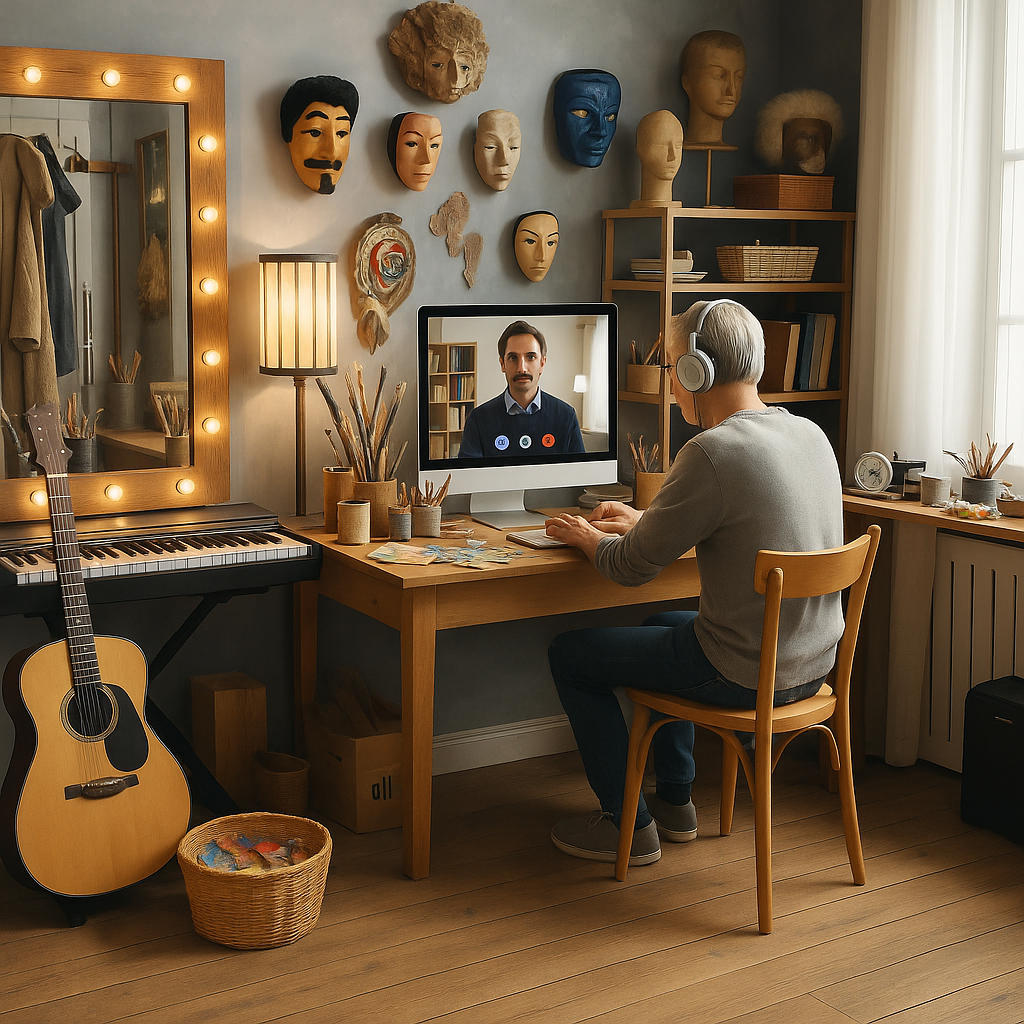Remote art therapy for neurodevelopmental and neurological disorders
How can art therapy be provided to those living in remote areas or who are unable to reach a specialist due to mobility restrictions?
Ērika Reitere, Jana Duhovska and Prof. Kristīne Mārtinsone, researchers from the Department of Health Psychology and Paedagogy at Rīga Stradiņš University (RSU), together with their colleague Vicky Karkou from the UK, have conducted a scoping review of research from the past 15 years analysing remote arts therapy for individuals with neurodevelopmental and neurological disorders.
The review includes 17 international studies, with music therapy as the most widely studied modality, which also included art, dance movement, and expressive arts therapies. The age range of participants was 4 to 87 years, and their diagnoses included autism spectrum disorders, attention deficit hyperactivity disorder (ADHD), Parkinson’s disease, dementia, and others.

Different platforms were used, including Zoom, Skype, FaceTime, WhatsApp, and specialised virtual environments. Various methods were used, ranging from breathing techniques, relaxation exercises, and visualisations to group singing, song writing, movement activities, as well as creating art in a digital environment. Both live online sessions and pre-recorded classes were used, allowing participants to engage at their own pace and time.
Every study included in the review reported the positive benefits of remote art therapy and they highlighted cognitive, emotional, and social improvements. However, this format also presented important challenges – technical difficulties, therapists’ limited ability to read body language, and restricted resources in the home environment. Nevertheless, with the growing number of studies, it is becoming clear that remote therapy is not merely a temporary solution for crisis situations – it is also becoming a significant part of healthcare in the future.




